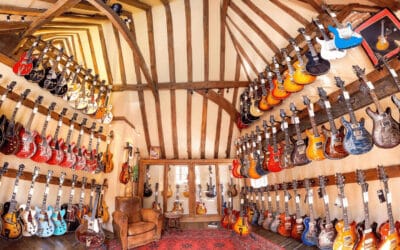Manchester has won a £10m prize to lead the way in the Internet of Things (IoT) technology.
The CityVerve Project won the Government-led technology competition to encourage more smart technology within cities. Its plans include talkative bus stops, which let bus operators know when commuters are waiting; and a network of sensors in parks and along commuter routes to encourage people to do more physical activity.
“I’m delighted that the CityVerve Project is the winner of our Internet of Things Cities competition. The Project will bring real benefits to people who live and work across Manchester, one of our Northern Powerhouse cities,” stated digital economy minister Ed Vaizey.
“The UK’s tech sector is renowned for its creativity as well as pioneering research and development. The Manchester project will help the UK to be a world leader in the adoption of Internet of Things technologies and inspire others around the world to create smarter cities.”
In total there were 22 entries from 34 cities across the country. The CityVerve project is led by Greater Manchester Local Enterprise Partnership and was selected because of “its ambition, scale, coordination across the public and private sector, and potential for success.”
“I’m delighted that Manchester has been selected as the UK demonstrator city to test and demonstrate how the imaginative use of smart technology can make a real positive difference to our people and businesses. The lessons learned from this project should benefit the country as a whole,” added Sir Richard Leese, leader of Manchester City Council.
“The pioneering work Manchester is doing on devolution, finding innovative ways to respond to local needs and priorities, makes us the perfect test bed for this work. Our plans are firmly focussed on creating the conditions for economic growth and helping connect people with the opportunities created – whether that’s helping them to monitor their own health to help avoid preventable illness or giving them improving transport information to help them move around the city more easily.”
The project will concentrate on 4 key areas: healthcare; transport; energy and environment; and culture and community.
“Manchester is a city built on innovation so it is a worthy winner of this competition. From business to healthcare, information is a valuable resource. This project will enable us to better use it to enhance services, increase performance and improve efficiency,” said Mike Blackburn, chair of the Greater Manchester LEP.
“Science and innovation is key to Manchester’s economic future. This project will enable us to be an example for the rest of the country, showing how new technology can aid the delivery of both business growth and public services.”
Partners in the project include Manchester City Council, Cisco UK, the University of Manchester and Manchester Metropolitan University, MSP, BT, Kiltr and Future Everything.
The demonstrator will be based at Manchester Science Partnerships’ city centre campus and will provide start-ups and SMEs from Greater Manchester and across the UK with access to a “world-leading open innovation programme”, working alongside the partners to test and develop smart city solutions.
A recent report by independent consultants Arup estimates that the global value of the Internet of Things sector will exceed £255 billion a year by 2020.
Further details:
The project is made up of a number of elements, including:
Managing chronic respiratory conditions, with CityVerve setting up a ‘biometric sensor network’ to help improve responses to patients’ conditions and improve how local healthcare services work.
Community wellness – a network of sensors positioned in parks, along commuter and school routes will track the progress of individuals and teams competing against each other for physical activity and fun.
Talkative bus stops – CityVerve will convert ‘flag and pole’ bus stops into safe places with location-based services, sensors/beacons, mobile apps and intelligent digital signage. People will check-in to their bus stop and let bus operators know they are waiting for their service.
Smart lighting – Smart lighting, in addition to connected street lighting is intended to reduce car use.
Bike sharing – With IoT-enabled bikes and e-cargo bikes to make “last-mile” deliveries along the bus and bike only Manchester corridor.
Smart air-quality monitoring – Lamp posts and street cabinets will monitor air quality at different heights and locations, with data made available to the public.







